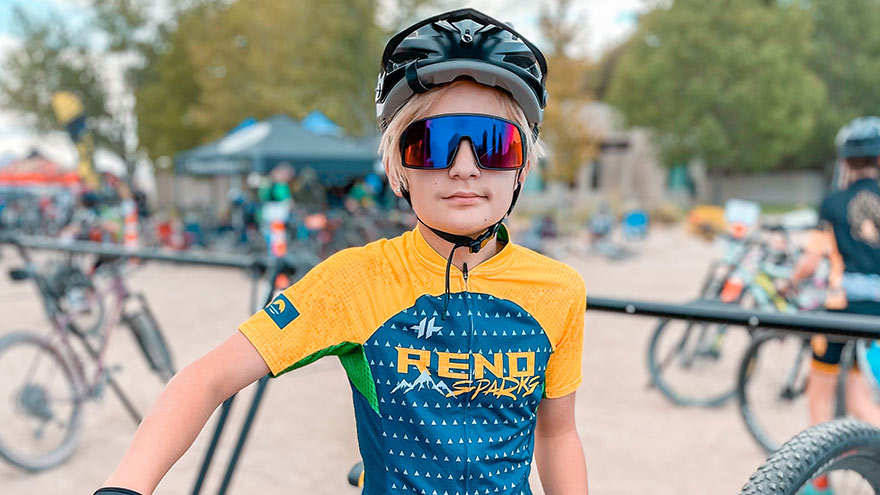Buscar
-
Head Injuries, Sprains and Broken Bones
Participating in sports and physical activities is enjoyable and beneficial for our health. However, the risk of injuries comes with the fun and excitement of sports. Sports-related injuries, including sprains, traumatic brain injuries and broken bones, are more common than we realize and can land you in the emergency room. Dr. Scott Shepherd, Emergency Medicine Physician, provides a wealth of information. Traumatic Brain Injuries: The Invisible Threat Traumatic brain injuries come in many forms. From “mild” brain injuries, concussions, to major brain injuries and bleeds. Sometimes it is very difficult to tell the difference between a major injury and a minor injury because many of the symptoms are the same. Concussions Concussions are a type of “mild” traumatic brain injury resulting from a blow to the head or a violent shaking of the body that causes a transient alteration in mental function. They are particularly prevalent in contact sports such as football, soccer and boxing. A concussion can affect memory, judgment, reflexes, speech, balance and muscle coordination. Typically, concussions are not life threatening and usually short lived. However, multiple concussions can lead to permanent disabilities. So, remember there is nothing “mild” about injuring your brain. Contusions The more serious brain injuries from brain contusions (actual bleeding in the brain material) and bleeding that presses on the brain are life threatening. These injuries are caused by the same blow to the head as a concussion and the symptoms are the same from memory deficits, loss of coordination to coma. Because of this, anyone who has a blow to the head and is not acting normal should be evaluated by a medical professional. Anyone suspected of having a severe head injury should seek immediate medical attention and follow a strict protocol for rest and a gradual return to play. It is important to note a person may not lose consciousness if they suffer a concussion; however, major consequences can occur if not properly managed. If you suspect you have an emergency that needs immediate medical attention, please call 911 or visit an emergency room near you. While it is impossible to prevent traumatic brain injuries altogether, the severity of the injury can be mitigated through proper helmet usage and knowing your skill level when participating in high-risk activities. The guidelines for picking a helmet for summer activities such as mountain biking, dirt biking and riding off highway vehicles are similar to those of picking a helmet for winter sports. Learn more about choosing the right helmet. Any blow to your head, neck or upper body can result in a major head injury Signs to watch for include the following: Headache Dizziness Blurred vision Difficulty with thinking, attention or memory Sensitivity to noise or light Ringing in the ears Changes in hearing Double vision Changes in behavior Balance issues Nausea/vomiting Sprains: The Annoying Twist One of the most common sports injuries is a sprain, which occurs when ligaments that connect bones are stretched or torn. Sprains typically occur in joints, such as the ankle, knee or wrist, and are often caused by sudden twists or impacts. Symptoms may include: Pain Swelling Bruising Limited range of motion Rest, ice, compression and elevation (RICE) are the initial recommended treatment, followed by physical therapy to regain strength and mobility.
-
Jakob’s Journey at Renown Children’s Hospital
In August 2016, six-year-old Jakob was admitted to Renown Children's Hospital with what seemed like a common ear infection. Jakob's condition quickly progressed, and he started experiencing neurological symptoms such as difficulty speaking and a full-body shutdown. Doctors, neurologists and specialists from Renown worked with doctors from Stanford, where he was ultimately diagnosed with Bickerstaff brainstem encephalitis (BBE). BBE is a rare, autoimmune response that attacks the nerves in the body due to an acute illness such as a cold, flu or, in Jakob's case, an ear infection. Jakob could not breathe or eat and experienced paralysis on the side of his face, throat, stomach, bowels, lungs and legs. In addition, he started to rapidly lose weight as well as body function. Jakob lost half his body weight which resulted in the need for a Gastrostomy tube. This device is placed surgically and gives direct access to the stomach to give the child the nutrition needed. He also needed occupational therapy, and after three and a half months of ICU respiratory therapy, surgeries and treatments, he was released home to regain his strength. Forever Grateful Anica, Jakob's mom, said, "If it were not for the quick response and unconditional support and compassion from the team at Renown, Jakob would not be here today." Jakob's family is forever grateful to the staff, community and expertise at Renown for their unwavering commitment to their son and family during their most trying time in life. "When I met Jakob on the first day of his illness, so much was unknown. My team and I were worried, as his symptoms were very unusual. His rapid deterioration, after being a perfectly healthy child, was clearly terrifying for his parents. Handing over a child's care to a team of strangers is one of the scariest things that can happen to parents,” said Dr. Kris Deeter, Physician in Chief at Renown Children’s Hospital. “However, Anica and Jeremiah were also very clear that they did not want Jakob transferred somewhere else. So, we used all our resources to care for him, arrive at a diagnosis, and start aggressive therapies. They listened to every word we said, educated themselves, and became partners in Jakob's care. We all became part of Team Jakob, and soon, he proved to us just how strong he was." Today, Jakob is 13 years old and thriving in every aspect of his life. He is currently on the honor roll in school and finds joy in his newfound passion for the violin. He loves spending his free time learning about mixing music, making new friends and traveling to different parts of the country. This summer, he will travel to Europe to explore his passion for culture. The family says, "We owe it all to the family and staff at Renown."
Read More About Jakob’s Journey at Renown Children’s Hospital

